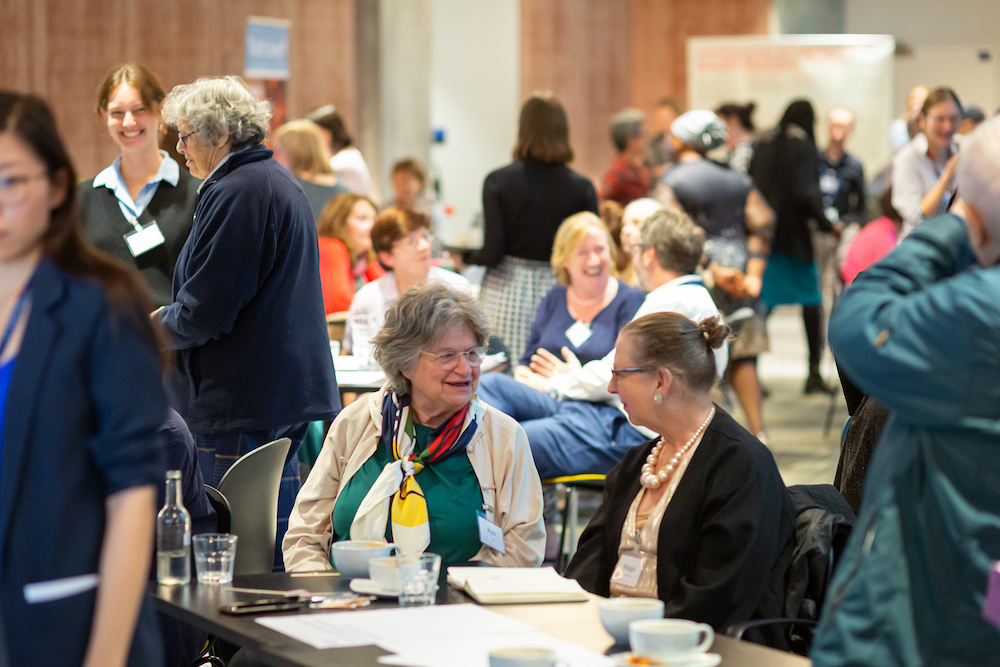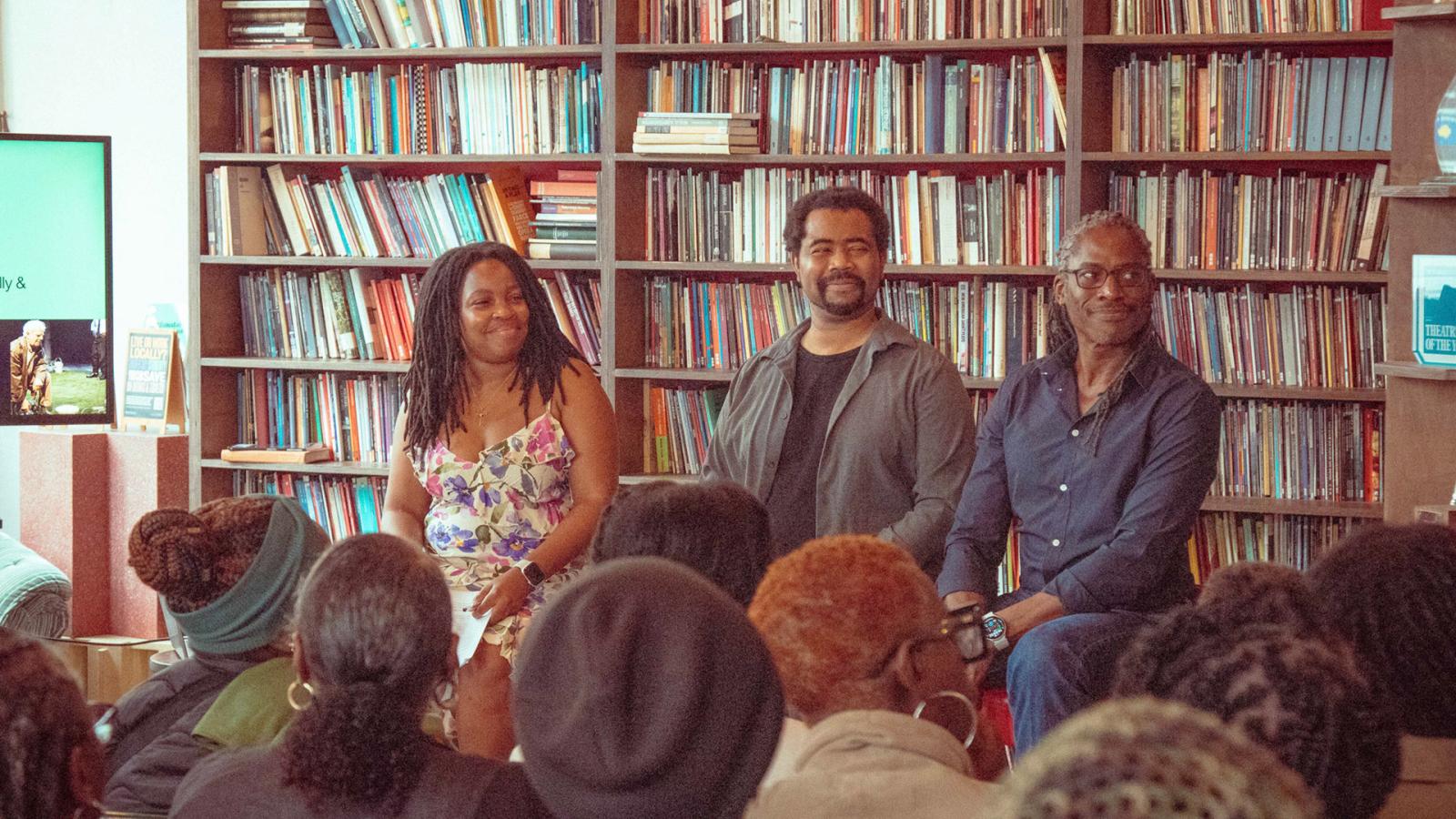On Saturday 5 July, UK DRI members Dr Nathasia Muwanigwa and Dr Dayne Beccano-Kelly, alongside Dr Moïse Roche (UCL Division of Psychiatry), led a community discussion about dementia with over 60 attendees from Black African and Caribbean communities aged 60+, their family members, and other stakeholders. This event formed part of a wraparound public engagement initiative linked to Miss Myrtle’s Garden, a play written by Danny James King that ran at the Bush Theatre from 31 May to 12 July. Here, Nathasia shares her experience of the event.
The play follows the story of Myrtle, a British Jamaican woman living with dementia, and delves into the decisions and challenges surrounding dementia care—highlighting the cultural implications for diverse families and the specific experiences of the Black British community. I served as the dementia science consultant for the production, advising the cast and creative team to ensure the narrative was grounded in the lived and clinical realities of dementia.
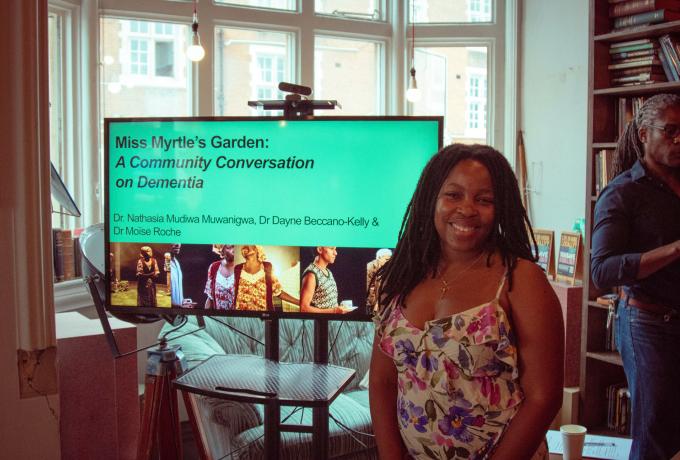
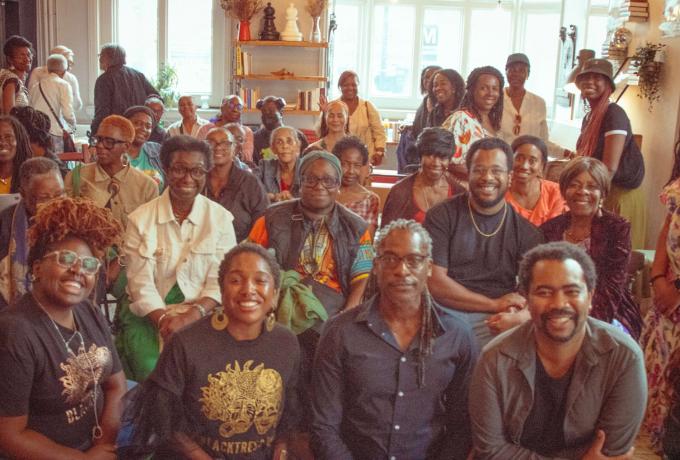
To further the play’s impact and create space for meaningful dialogue, I organised a community-focused engagement event in collaboration with the Bush Theatre marketing team, Blacktress UK, and their SAGE Club initiative, which promotes theatre access for Black people over the age of 60 by providing free tickets to plays that centre Black stories. The day included a shared lunch, attendance at the matinee performance, and a 90-minute panel discussion.
During the discussion, attendees had the opportunity to hear directly from Black dementia researchers about what dementia is—and what it isn’t—as well as dementia care in the UK. The panel addressed key risk factors, debunked common myths, and responded to thoughtful audience questions. For many in the room, it was their first time engaging with Black scientists, powerfully highlighting the importance of diverse representation in science and research. One of the major outcomes of the session was a clear desire from attendees to be more directly informed and engaged with research. We circulated a sign-up sheet to share more information from the UK DRI, with interest also expressed in possibly joining a public and patient involvement (PPI) engagement group.
We had positive feedback from attendees, with one person remarking: “Thank you, I was so informed. Panel speakers were all exceptional. Great having this expertise in the room.”.
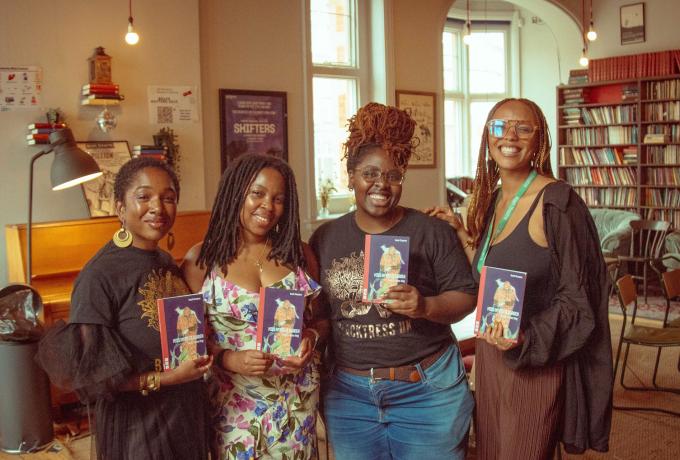
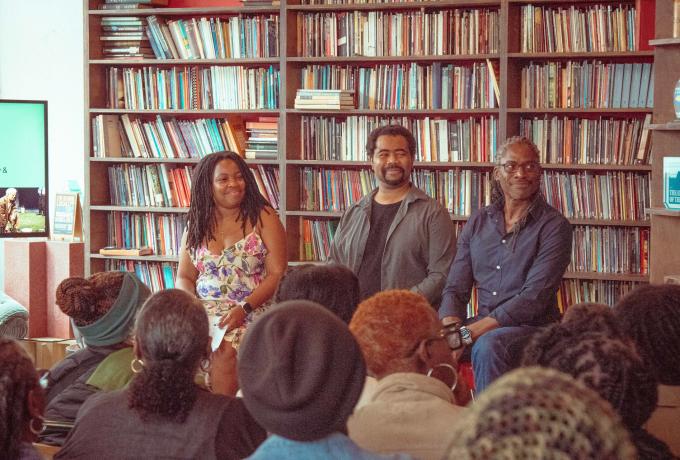
Others said: “Excellent event. Thank you for the organisation. I feel informed, part of a community. Great connection with theatre and discussion.”, and “It was honestly and meaningfully facilitated.”
Dementia disproportionately affects minoritised communities in the UK. Recent studies suggest that incidence within Black communities is expected to rise significantly higher than in white populations. Black people are also underrepresented in clinical trials and research. Events like these help us lay the groundwork for building trust and dialogue with diverse communities, to better understand how dementia affects their lives and what their concerns are. As a Black researcher in particular, I am dedicated to working towards building more inclusive research cohorts.
Dr Dayne Beccano-Kelly added:
“It is really important to provide clarity to the subject of dementia and the research we do. Misinformation can have one of the major consequences of lower engagement from those with the disorders and their families. Ultimately, this impacts the work we can do and the strides we can make on their behalf. Having a dialogue can not only demystify science but, help the researcher community understand the structure of the barriers that exist (whether it be cultural or otherwise) and allow us to solve and overcome them. This was something I think was achieved really well at this event!”
Dr Moïse Roche said:
“The event, alongside the willing and open participation of Black communities, highlighted the urgent need for dementia research led by Black researchers and rooted in the lived realities of Black individuals. Too often, race, ethnicity, and culture are used to explain disparities without addressing the structural inequalities that drive them. By centring the voices of Black African and Caribbean people, the play, and the panel discussion that followed, challenged racialised assumptions in dementia research and reframed the conversation around structural inequality and socio-political context. Black-led research is essential to dismantling reductive narratives, building meaningful knowledge, and driving systemic change in health and social care practices.”
This event highlights the UK DRI’s ongoing commitment to engaging with underrepresented communities and advancing equity in dementia research and care. Through creative collaborations and culturally relevant conversations, we continue working to ensure that no one is left behind in the pursuit of better brain health.
Public engagement
Find out more about how we are connecting people with our research
